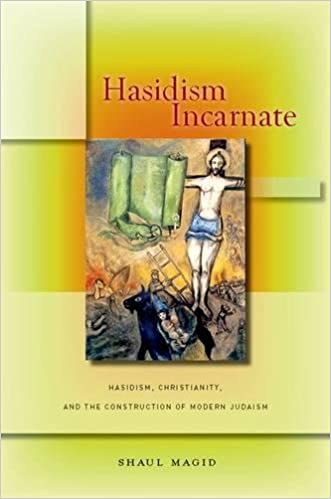Description
Hasidism Incarnate contends that much of modern Judaism in the West developed in reaction to Christianity and in defense of Judaism as a unique tradition. Ironically enough, this occurred even as modern Judaism increasingly dovetailed with Christianity with regard to its ethos, aesthetics, and attitude toward ritual and faith. Shaul Magid argues that the Hasidic movement in Eastern Europe constitutes an alternative “modernity,” one that opens a new window on Jewish theological history. Unlike Judaism in German lands, Hasidism did not develop under a “Christian gaze” and had no need to be apologetic of its positions. Unburdened by an apologetic agenda (at least toward Christianity), it offered a particular reading of medieval Jewish Kabbalah filtered through a focus on the charismatic leader that resulted in a religious worldview that has much in common with Christianity. It is not that Hasidic masters knew about Christianity; rather, the basic tenets of Christianity remained present, albeit often in veiled form, in much kabbalistic teaching that Hasidism took up in its portrayal of the charismatic figure of the zaddik, whom it often described in supernatural terms.
Reviews
“Hasidism Incarnate brings a fresh vision to one of the most fascinating modern religious movements and helps us to appreciates how revolutionary leaders such as R. Nahman of Bratslav truly were.״
Jonathan Garb Hebrew University
“But as Shaul Magid’s fascinating new book Hasidism Incarnate shows, the deep religious structures of [Christianity and Judaism] may not always be as different as that first glance might suggest . . . Hasidism Incarnate offers a sophisticated approach to the thorny question of the differences between Jewish and Christian religious theology and practice״
Emily McAvan Global Comment
